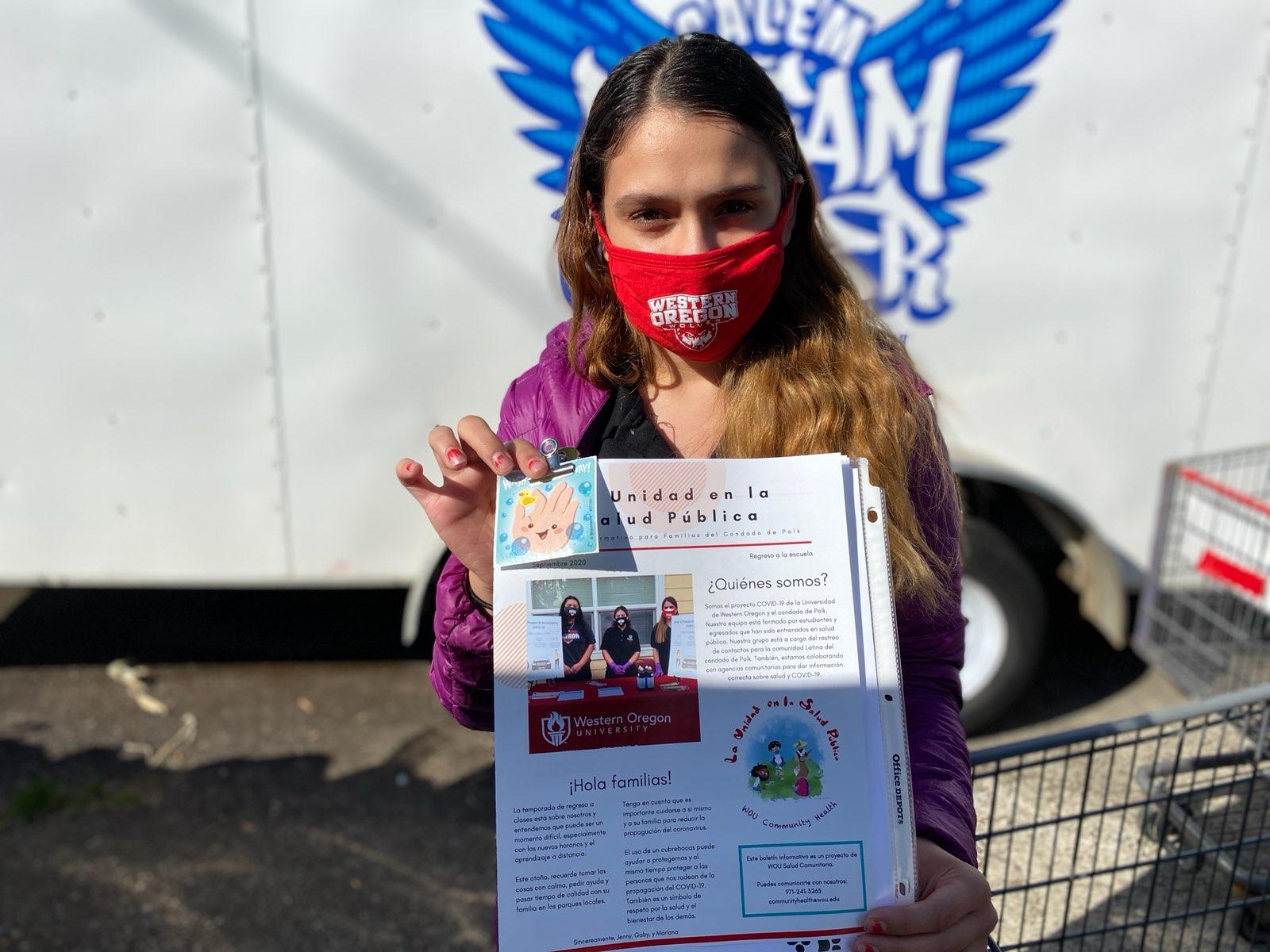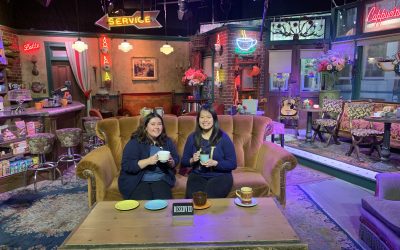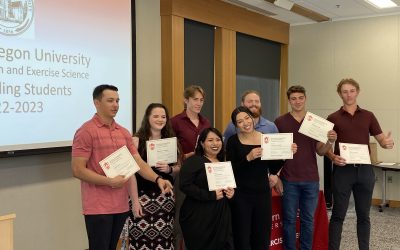Contact tracing project gives HEXS students first-hand experience in public health
A Pew Research Center poll published in late October found that 41 percent of respondents would be reluctant to speak to a public health official who contacted them about the COVID-19 pandemic.
That’s the challenge facing WOU students working as contact tracers as part of a collaboration between the Division of Health & Exercise Science (HEXS) and the Polk County Public Health Department. Student employees working for the project are responsible for calling people who have been exposed to someone who has tested positive for COVID-19 and informing them that they need to self-quarantine for 14 days. They also follow up daily with people exposed to the virus.
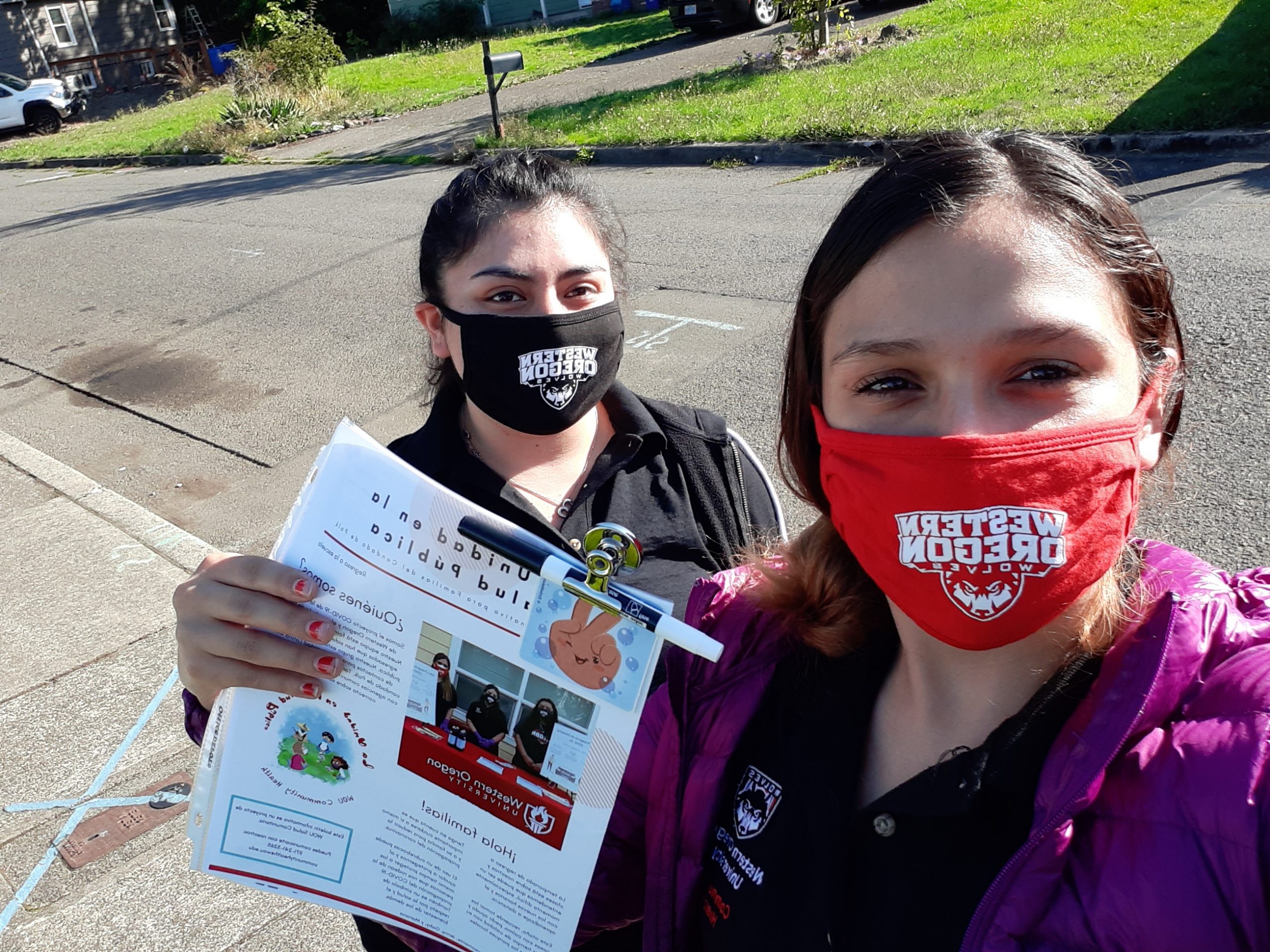
Jenny Leon-Perez and Maddie Dirren, two recent HEXS graduates who are now working as project coordinators for the WOU Community Health + Polk County COVID-19 Project, said they and the students they manage do encounter people with misgivings when they call.
“Some people are worried they are being scammed, so we have to address those concerns,” said Dirren.
Dirren added that they see a wide range in responses, from people with questions to people who are angry they have to quarantine.
“Just answering questions and listening can have a positive impact,” she said. “I really enjoy those conversations.”
Leon-Perez said many people also don’t understand why the contact tracers need to call every day to check in on their symptoms. She said the daily contact lets public officials monitor their status, answer their questions, connect them with resources to help them during their quarantine and even help them find a place to get tested if they become symptomatic.
“It’s nice when I can help them with resources,” she said. “They have to stay home for 14 days and sometimes need connections to resources like food. It’s very rewarding to be able to help them and take that worry from them.”
Leon-Perez and Dirren joined the project in June and they jointly lead the student employees, alternating working days so one of them is always available to manage the student employees because contact tracing is done even on weekends.
Dirren, who graduated after spring term with a degree in community health, said she feels fortunate to be part of the project.
“This is an incredible experience to put on my resume. I feel like it’s going to propel me forward and open a lot of opportunities for me,” she said.
Leon-Perez, who graduated with a degree in community health after winter term and also joined the project in June, agreed that it’s a valuable opportunity and said she’s learning a lot about managing employees in a remote work setting.
“We set meetings so we can talk about what everyone is doing and that’s helpful,” she said.
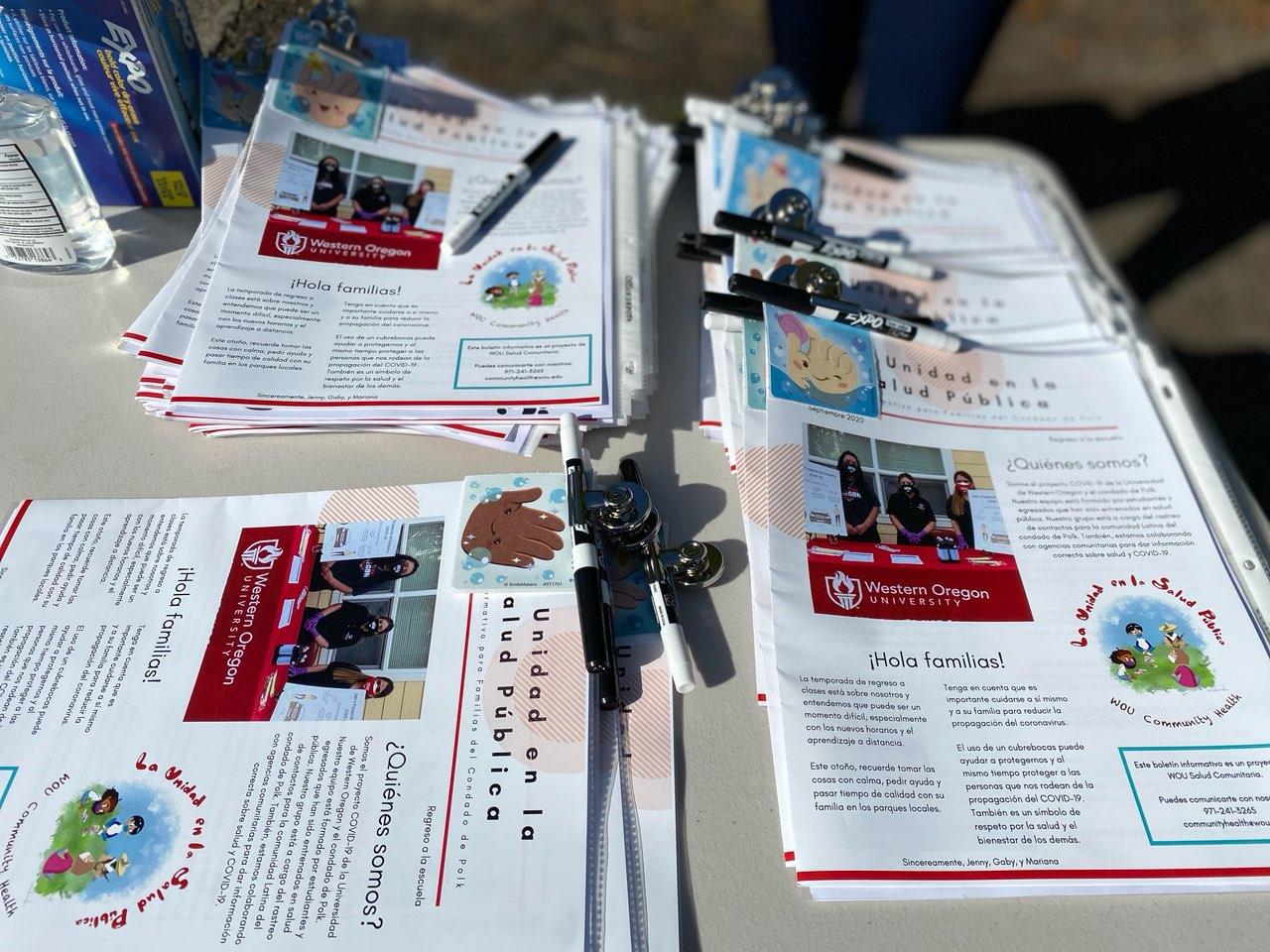
Both project coordinators said it was also an opportunity to apply what they had learned in class to the real world.
“Through the curriculum in community health you learn steps of a project,” said Dirren. “Here, you get to see it in real time with real partners. You see those skills they teach you do come in handy.”
Leon-Perez added that for her one of the biggest lessons she’s had through the project is the importance of community partners. She added that while the project was formed in response to the pandemic, the organizations involved want to continue their partnerships beyond COVID-19.
Both said they would like to raise awareness of what contact tracing is in the community and they and their student employees are also producing educational materials for the community. The public can learn more about the project on its website.
“We really want to create more awareness of contact tracing, so people know more about it and participate and just answer the phone,” said Leon-Perez.
WOU Community Health Assistant Professor Megan Patton-Lopez and Associate Professor Emily Vala-Haynes lead the WOU Community Health + Polk County COVID-19 Project. Learn more about how the collaboration got started.
